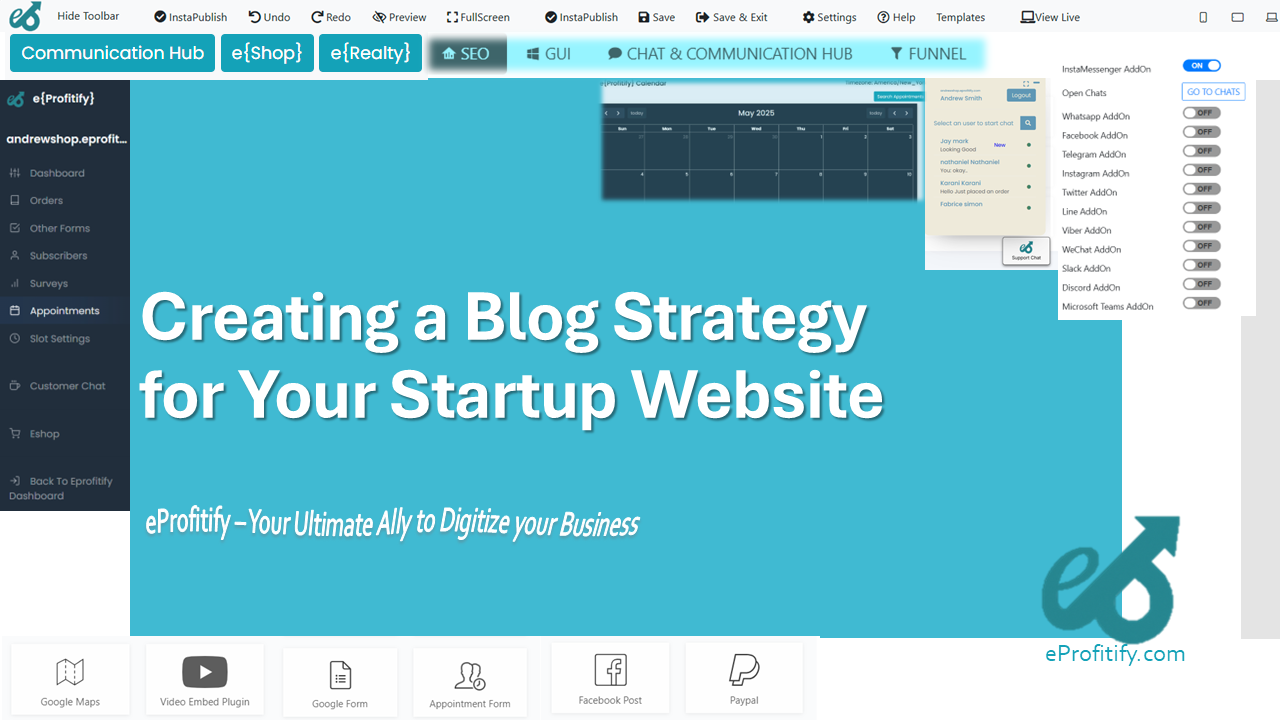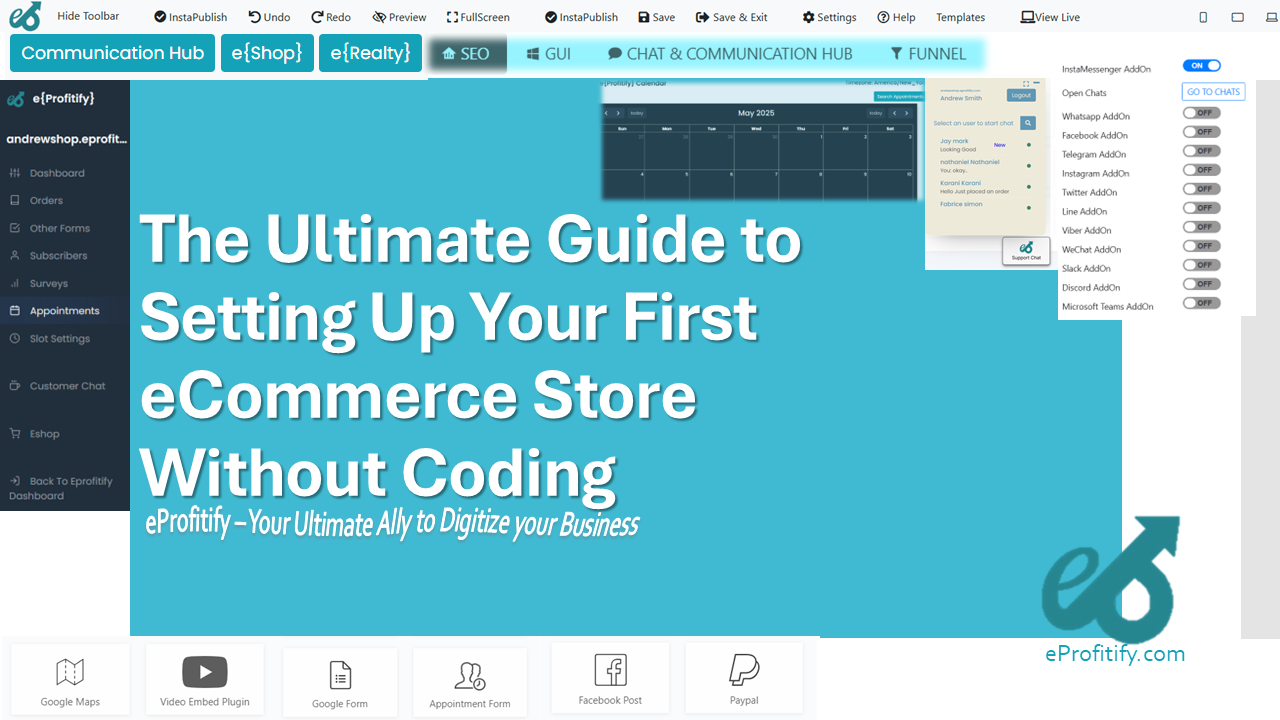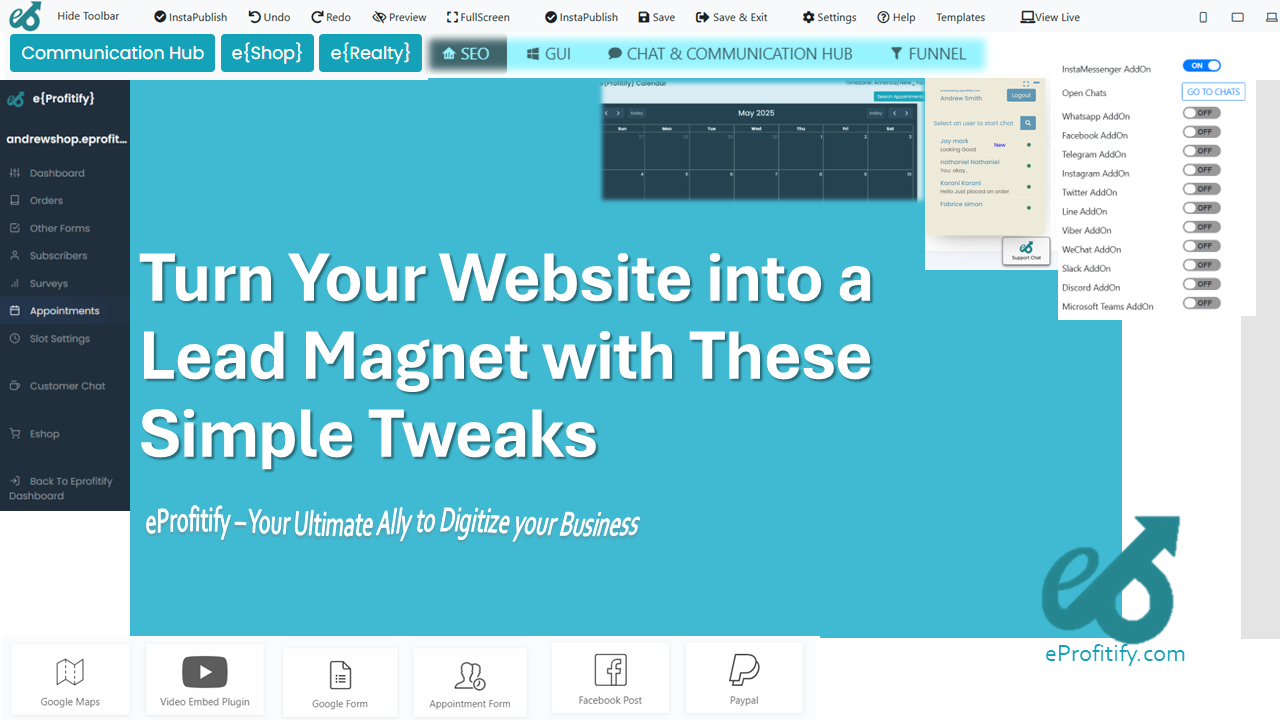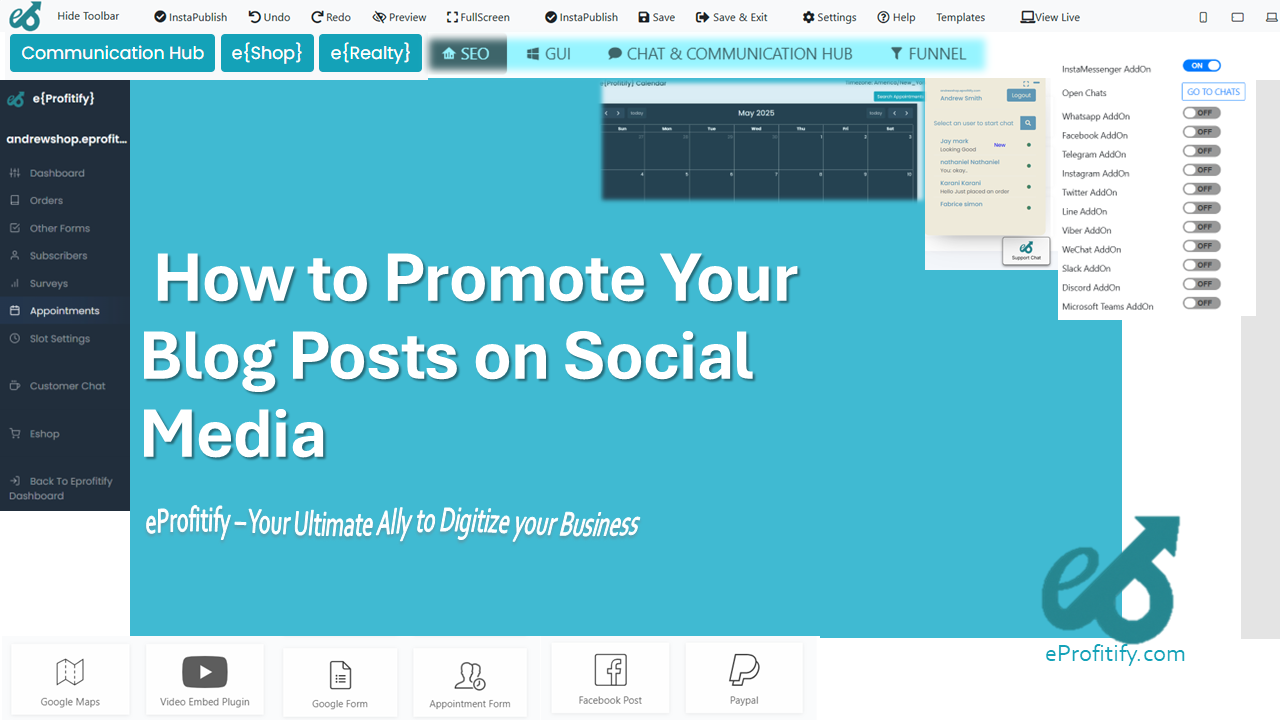The Role of Customer Feedback in Online Ordering Systems
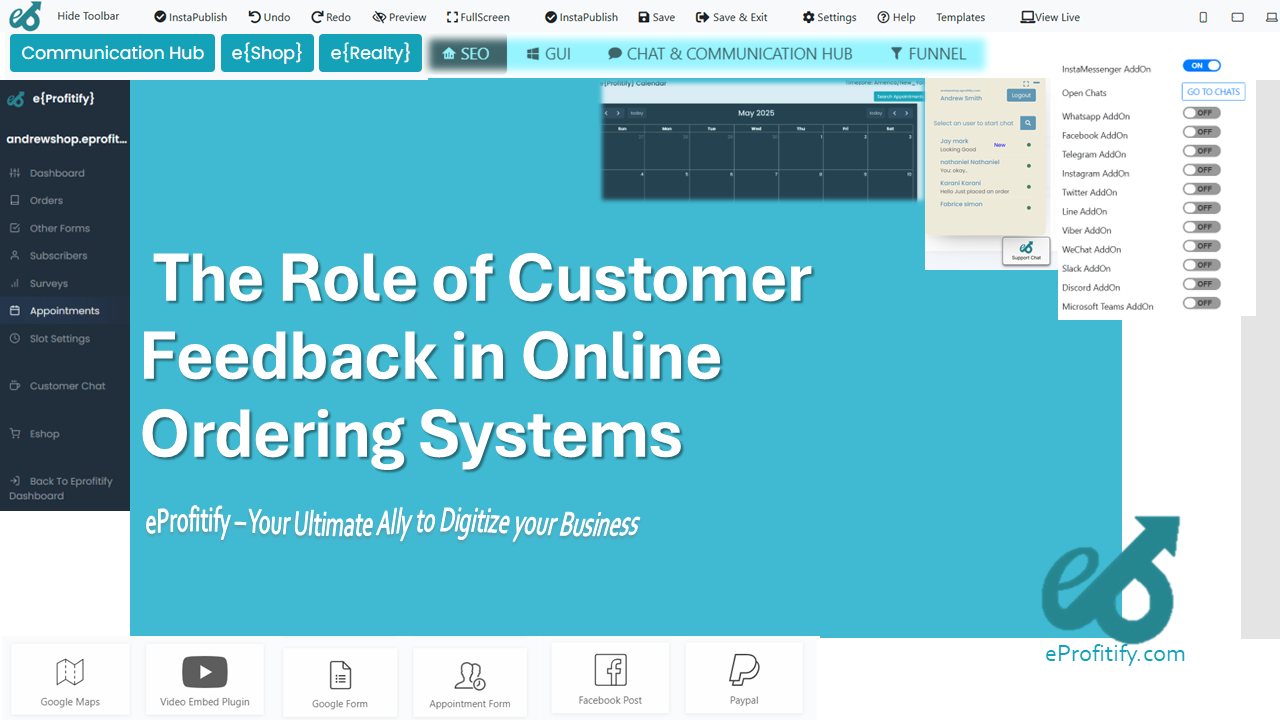
The Role of Customer Feedback in Online Ordering Systems
Leveraging Insights for Growth and Customer Satisfaction
The rise of e-commerce has transformed how businesses and consumers interact. Online ordering systems, in particular, have become a cornerstone of modern retail, offering convenience and accessibility. However, in a competitive digital marketplace, customer feedback has emerged as a critical driver of success. By understanding and acting on customer insights, businesses can refine their operations, boost loyalty, and drive revenue. This article explores the pivotal role of customer feedback in online ordering systems, supported by statistics, and highlights how tools like eProfitify empower businesses to harness feedback effectively.
The Importance of Customer Feedback
1. Improving Service Quality and Personalization
Customer feedback provides direct insights into what works and what doesn’t in an online ordering system. A study by Qualtrics found that 89% of consumers read reviews before making a purchase, underscoring the weight of peer opinions. By analyzing feedback, businesses can identify trends, such as website navigation issues or delivery delays, and address them proactively. Personalized experiences, such as tailored product recommendations, also stem from feedback analysis. Salesforce reports that 66% of customers expect companies to understand their needs, making personalization a key differentiator.
2. Enhancing Customer Retention
Retaining customers is more cost-effective than acquiring new ones. According to Invesp, 77% of consumers view brands more favorably if they actively seek and act on feedback. Promptly addressing complaints or suggestions fosters trust. For instance, resolving a shipping issue reported via feedback can turn a dissatisfied customer into a loyal advocate. Adobe adds that companies leveraging feedback see a 34% increase in customer retention rates.
3. Driving Business Growth
Feedback isn’t just about problem-solving; it’s a growth engine. A Harvard Business Review study revealed that a 5% increase in customer retention can boost profits by 25–95%. Moreover, user-generated content, like reviews, influences purchasing decisions. Nielsen notes that 83% of consumers trust peer recommendations over ads, making positive feedback a powerful marketing tool.
Methods of Collecting Feedback
1. Post-Purchase Surveys
Post-purchase surveys via email or in-app prompts are widely used. Statista highlights that 45% of businesses collect feedback through email. For example, asking customers to rate their checkout experience can reveal friction points.
2. Real-Time Feedback Tools
Live chat and instant messaging enable immediate responses. Platforms like eProfitify integrate real-time messaging, allowing customers to share feedback during interactions. This immediacy helps resolve issues before they escalate.
3. Social Media and Review Platforms
Social media is a double-edged sword: 54% of consumers share feedback on platforms like Twitter or Facebook (ReviewTrackers). Monitoring these channels helps brands address public complaints and amplify positive sentiment.
4. CRM Systems
Customer Relationship Management (CRM) systems aggregate feedback across touchpoints. Tools like eProfitify’s CRM consolidate data from emails, chats, and surveys, offering a 360-degree view of customer sentiment.
Analyzing and Acting on Feedback
1. Leveraging Analytics
Advanced analytics transform raw data into actionable insights. For instance, sentiment analysis can categorize feedback as positive, neutral, or negative. Companies using analytics report 10% higher revenue growth compared to peers (Invesp).
2. Implementing Changes
Feedback is futile without action. When Domino’s Pizza received criticism about their crust quality, they revamped their recipe and showcased customer testimonials in ads, leading to a 14% sales increase.
3. Closing the Loop with Customers
Informing customers about changes based on their input builds loyalty. A simple email like, “We’ve fixed the issue you reported!” reinforces that their voice matters.
Technology’s Role: eProfitify as a Leading Solution
To streamline feedback management, businesses need robust tools. eProfitify stands out as a comprehensive website publishing and management platform with features tailored for modern e-commerce needs:
- Instant Messaging: Facilitates real-time communication, enabling prompt feedback collection and resolution.
- Appointment Management: Integrates with service-based businesses to gather post-appointment reviews.
- Ecommerce Tools: Embed feedback widgets post-purchase to capture customer sentiment seamlessly.
- CRM Integration: Tracks customer interactions and feedback history, enabling personalized follow-ups.
- Analytics Dashboard: Visualizes feedback trends, helping businesses prioritize improvements.
By leveraging eProfitify, companies can automate feedback loops, enhance customer engagement, and foster data-driven decision-making.
Key Statistics Highlighting Feedback’s Impact
- 89% of consumers read online reviews before purchasing (Qualtrics).
- Responding to feedback improves brand perception for 77% of customers (Confirmit).
- Companies using customer feedback see 10% higher revenue growth (Invesp).
- 34% of customers abandon brands after a single poor experience (PwC).
Conclusion
Customer feedback is the lifeblood of online ordering systems, shaping user experiences and operational strategies. In an era where consumer expectations are sky-high, tools like eProfitify empower businesses to stay agile, responsive, and customer-centric. By integrating feedback into every facet of operations—from CRM to real-time messaging—companies can turn insights into action, ensuring long-term growth and loyalty.
In the digital age, listening isn’t optional—it’s imperative. Embrace feedback, leverage cutting-edge tools, and watch your online ordering system thrive.



